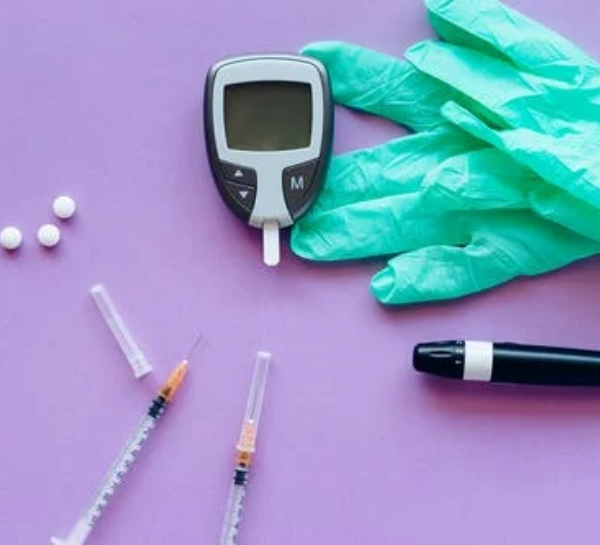Nothing is more frustrating than unintentional weight gain, particularly when you don’t know why it happened.
Weight gain might indicate that something else is wrong with your body. So, you may be asking, “Can vitamin deficiency cause weight gain?” Many minerals, vitamins, and hormone deficits have been related to metabolic conditions that affect your body’s natural capacity to control weight.
Of course, it’s crucial to understand that deficiencies aren’t always the primary source of this. Before assuming that a deficiency is the cause of your weight problem, you must always rule out other probable causes, such as chronic diseases.
So, can vitamin deficiency cause weight gain?
What Can Cause Inability to Lose Weight?
Losing weight is more complicated than simply reaching the energy balance right.
Some food choices, health conditions, and medications simplify acquiring weight. Here are some of the causes inability to lose weight:
Inadequate Sleep
Burning the midnight oil might make losing weight more difficult. The hormone ghrelin causes hunger, whereas leptin implies fullness or satiety.
In sleep-deprived individuals, a drop in leptin and a rise in ghrelin led to increased hunger, particularly cravings for salty snacks, starches, and sweets. Sleep deprivation might drive you to make poor food choices and overeat.

Medical Conditions
Cushing’s syndrome, polycystic ovary syndrome, and hypothyroidism are all diseases related to weight gain, failure to decrease weight, and obesity. Untreated hypothyroidism decreases metabolism, making it difficult to lose weight.
Additionally, insulin resistance, which results in increased body fat, is associated with polycystic ovarian syndrome. Other disorders that mimic Cushing’s syndrome may also make losing weight difficult. These conditions might manifest as anxiety, depression, or other behavioral problems. People with poorly managed diabetes may also struggle to lose weight.

Diet
It is hard to lose weight if you consume more calories than you burn. Other dietary choices might also impact your ability to lose weight. Consuming high-glycemic meals, such as sweets and refined carbohydrates, significantly increases blood glucose and promotes insulin production.
Blood glucose levels decline within two hours, causing increased appetite and overeating. Lower-glucose meals, such as whole grains and vegetables, cause a delayed release of glucose, delaying hunger and keeping you feeling full and satisfied, causing you to eat less overall. Those who took 1,000 milligrams of calcium per day dropped more than 17 pounds on average over four years compared to women who got a placebo.

When you space out your meals too much, your metabolism slows down and isn’t able to burn off all the calories you eat in your next meal. Those extra calories may wind up as extra weight. And you may overeat because you’re too hungry. Try eating smaller portions, and eat more often.
Reasons You’re Not Losing Weight
Medications
Some medications may make losing weight more difficult or cause weight gain.
This side effect is one of the reasons why many people discontinue their medication.
Weight gain may be caused by drugs that influence the central nervous system, such as anticonvulsants, antidepressants, and migraine treatments.
Steroids (such as corticosteroids used to treat asthma), beta-blockers, antihistamines, and certain chemotherapy medicines may inhibit weight reduction.
Antidepressants and antihistamines both have the potential to boost carbohydrate cravings and appetite.

Your slower metabolism will slow your weight loss, even if you eat the same number of calories that helped you lose weight. When the calories you burn equal the calories you eat, you reach a plateau. To lose more weight, you need to either increase your physical activity or decrease the calories you eat.
Getting past a weight-loss plateau
Can Vitamin Deficiency Make You Gain Weight?
Vitamin deficiency makes you gain weight. You’ve probably heard of vitamin D’s effects on bone health. Higher levels of the vitamin can assist your body in promoting strong skeletal functions, while lower levels may cause illnesses such as osteoporosis.
However, research has shown that a lack of this vitamin may also lead to unintended weight gain. Moreover, several studies over the last decade have indicated that women with vitamin D deficiencies are more likely to gain weight than women with normal nutrient levels.
Vitamin D insufficiency affects around 42% of the population in the United States, indicating that it is quite widespread. Joint discomfort, fatigue, and frequent infections are other signs of the deficiency. If you experience any of these symptoms in addition to weight gain, you might have inadequate vitamin D levels.
If you feel bloated after popping your daily vitamin or supplements, you may think the two are related—and you’d be right. According to experts, multivitamins and certain supplements are more likely to cause bloating than others.
The Connection Between Supplements, Vitamins and Bloating
Which Vitamin Deficiency Can Cause Weight Gain?

Some vitamin deficiencies may lead to weight gain, such as vitamin D insufficiency.
Vitamin D, commonly known as the sunshine vitamin, is a hormone produced by your body when your skin is exposed to sunlight. Vitamin D may also be acquired by diet, although few foods contain large levels.
Individuals who are overweight or obese tend to be more likely to have low vitamin D levels than people who have a “normal” body mass index (BMI). As a result, some people believe that low vitamin D levels might cause weight gain.
Similarly, a recent review of 11 weight reduction studies found that taking 25,000–600,000 IU (625–15,000 mcg) of vitamin D monthly for 1–12 months may lower BMI and waist circumference in those who are overweight or obese.
However, these changes remain minor, and no significant alterations in total body weight were seen.
Furthermore, current research shows that increasing vitamin D intake has little effect on weight loss or weight gain despite these results. More research distinguishing between body weight and body fat may be required to assess this impact accurately.
Thiamine (B1), for example, helps the body cells convert carbohydrates into energy. In other words, low levels of one or more of these vitamins means your metabolism won’t be functioning at its best. This makes losing weight even harder.
5 Vitamins and Minerals to Boost Your Metabolism and Promote Weight Loss
Comment below to share your thoughts and don’t miss our blog on collagen and weight gain.

